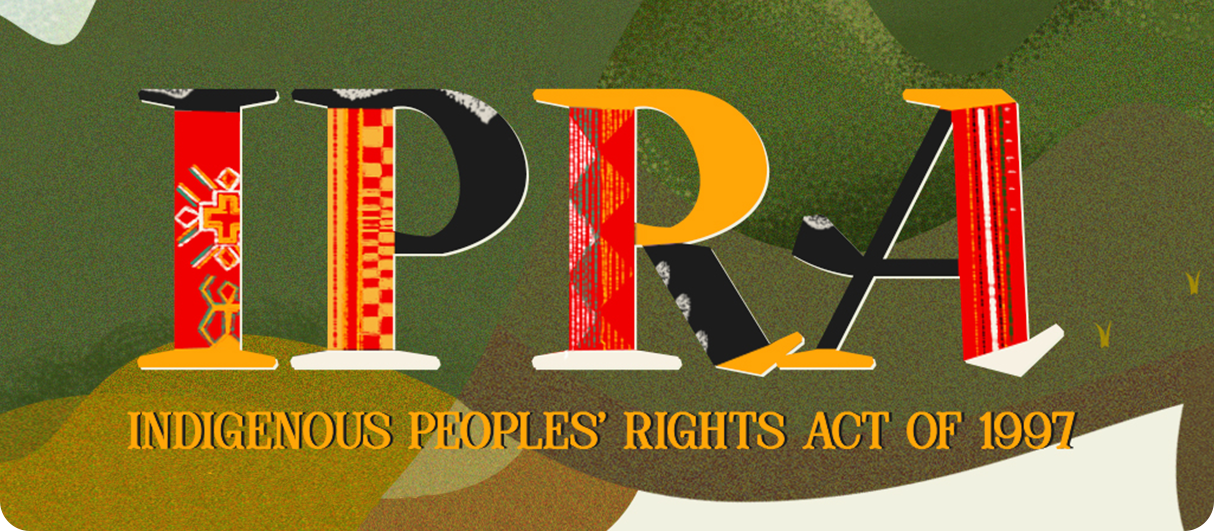October is Indigenous Peoples Month. Learn about the rights of indigenous peoples and indigenous cultural communities in the Philippines as enacted in the Indigenous Peoples’ Rights Act of 1997 (IPRA).

What is IPRA?
Enacted on October 29, 1997, the Republic Act No. 8371 or the “Indegenous Peoples Rights Act of 1997” (IPRA) is an “act to recognize, protect, and promote the rights of indigenous cultural communities/indigenous peoples (ICCs/IPs), creating a national commission on indigenous peoples, establishing implementing mechanisms, appropriating funds thereof, and for other purposes.
Indigenous Cultural Communities / Indigenous Peoples (ICCs / IPs)
“a group of people or homogenous societies identified by self-ascription and ascription by others, who have continuously lived as organized community on communally bounded and defined territory, under claims of ownership since time immemorial”
—Republic Act No. 8371, Official Gazzette of the Republic of the Philippines

Rights of ICCs/IPs under IPRA

Right to Self-governance and Empowerment

Right to Ancestral Domains

Right to Cultural Integrity

Social Justice and Human Rights
National Commission on Indigenous Peoples (NCIP)
“the primary government agency mandated to protect and promote the interest and well-being of the ICCs/IPs with due regard to their beliefs, customs, traditions and institutions”
Indigenous Peoples Month
By virtue of Proclamation no. 1906, s. 2009, the Indigenous Peoples (IP) month is celebrated every month of October.
National Indigenous Peoples (IP) Day
By virtue of Republic Act no. 10689, August 9 is declared as “National IP Day”, which coincides with the “International Day of the World’s Indigenous Peoples observed on the same day.
—
References:
